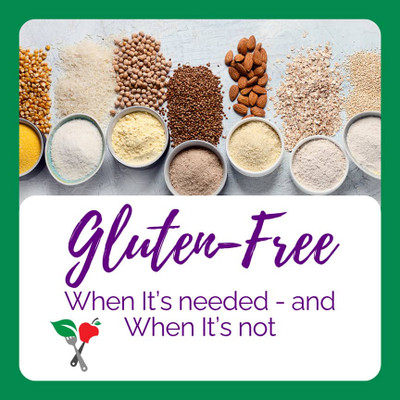Questions to Ask Your Doctor Before Starting a Diet
Oftentimes, when we hear about a new diet or new supplement in the media, we also hear the warning, “ask your doctor before starting.” This is for good reason!
Of course, we know that certain supplements can interact with both over-the-counter and prescription medications, but did you know that diets should also be discussed with your physician?
The weight loss industry is a billion-dollar industry, with many companies trying to sell you the latest and greatest diet products. With a fail rate of almost 70% and a 95% relapse rate in 5 years or less, it is important to think about the big picture and your long-term health for any diet that you choose. Many of these products can do much more harm than good.
Did you know that the average American tries to implement a fad diet 4 times per year? The problem is that fad diets often leave people feeling restricted and deprived which makes it hard for them to sustain any changes for any length of time. The quick-fix approach is not realistic.
It took time to develop the extra weight and it is going to take time to get that weight off in a healthy way. Plus, it can be dangerous to lose a lot of weight quickly. Australian researchers have shown that girls who diet at severe levels are 5 times more likely to develop an eating disorder in 6 months.
The gallbladder can also be impacted by a fast weight loss. Stones can develop with significant weight loss and can lead to inflammation or a blockage that might require surgery. Some diet changes can impact your blood pressure and blood sugar, which could be dangerous if you are on medications for these conditions.
WHAT YOU SHOULD ASK YOUR DOCTOR
Before starting a diet, be sure to address the following concerns with your doctor:
Is this a diet or product something I can sustain long term?
Your doctor might ask specific questions about the diet to determine if it’s something that can be sustained long-term. Healthy diets can (and should) be followed for a lifetime. They do not exclude food groups and include balanced nutrition. Dieters should avoid anything that doesn’t sound both nutritious and delicious.
Overall, if it’s not something you can stick with long-term, then you shouldn’t start in the first place. Typically, dieters cannot stick with with freeze-dried, frozen meals, or shakes for an extended period of time - nor should they. These meals are very seldom healthy or satisfying. Fresh fruits and vegetables should be a part of every meal, and they should be foods you like.
While it may take some time to fully learn to love fresh-tasting, healthy foods, you should find satisfaction in how certain meals and food make you feel.

Am I mentally and physically ready to start a diet?
Your doctor is a great person to discuss your readiness to change with a new diet. If you are not mentally ready to start, then you shouldn’t. Constantly going on and off diets is more harmful than just sticking with an overall, unhealthy diet. Your doctor will likely explain that you should have realistic and attainable goals. Making a plan, rather than stating one daunting goal, can create a series of smaller steps that are much more attainable, making it more likely you will reach a goal. He or she can also help you determine a goal weight based on your height, weight, and body type.
Is my condition -- diabetes or heart failure -- dangerous with certain types of diets?
It can be dangerous, for example, if someone with diabetes takes insulin then eats a carb-free meal. This can result in severely low blood sugars. It’s important to eat a certain amount of food so that blood sugars do not drop or spike. A doctor may suggest a consultation with a registered dietitian, if this is the case.
Additionally, heart failure patients have a hard limit on the amount of sodium they should consume, therefore it’s important to discuss the details of your diet so that your doctor can give you the green light.

Are there any nutrients I might be missing when I start a diet?
Your doctor knows that if the product or diet you are starting leaves out an entire food group, or expects you to rely on only shakes, bars, or pills for your nutrition. If this is the case, it is highly likely you are missing out on some very important nutrients.
Healthy diets are balanced diets that you can consume for the rest of your life and should include a variety of all of the food groups. It's important to remember, if a plan says that you do not have to change your diet or exercise habits, it is often a lie. This could lead to nutrient deficiencies if you don't do a good job of planning balanced, nutritionally adequate meals. Some people interpret this as they can eat whatever they want and leave out nutritious foods like fruits, vegetables, dairy, nuts/seeds, etc.
Do I need to tell others about my plans?
Your doctor will likely encourage you to share your plan with family and friends. They may even encourage you to join a support group to reach your goals. This could be a group of coworkers or an online weight loss group. Having people to share your struggles and successes with makes your journey to a healthier lifestyle much easier and less intimidating. Further, accepting help from those who care about you and will listen strengthens your resilience and ability to manage stress caused by your resolution.

If you feel overwhelmed or unable to meet your goals on your own, your doctor might refer you to a counselor or dietitian. Counselors are uniquely trained to understand the connection between the mind and body. Both dietitians and counselors can offer strategies as to how to adjust your goals so that they are attainable, as well as help you change unhealthy behaviors and address emotional issues.
Unfortunately, many individuals who go on a diet end up regaining the weight they lost. Discussing your plans with your practitioner increases your chances for success, along with setting realistic goals and consuming a healthy, balanced diet. This also helps to verify that the changes you are making will positively impact your health conditions and work with your prescribed medications.
Remember, many diets and weight loss products all have the same underlying principle…a temporary, often unproven, solution for a long-term problem. Sure, they can be tempting, but it’s important to stay focused on your long-term health, making changes that work for you, and relying on medically trained professionals rather than “coaches” selling the products (who, by the way, often have no background education in nutrition or health other than what they have been taught by the company they are selling for).

Beyond having a conversation with your doctor, it’s important to check in with yourself. “Can I eat this way forever and be in good health?” If the answer is yes, it is likely a manageable lifestyle, If the answer is no, it is likely a fad diet. Set realistic expectations with yourself too. Don’t try to achieve a 10-pound weight loss in 1 week. A weight loss of 1-2 pounds per week is a healthy approach. Individuals who lose weight at this pace tend to keep the weight off long term and experience improvements in their health.
If you're looking for a healthy meal plan alternative to discuss with your doctor, based on real nutritional value and created by registered nurses and dieticians, try Seattle Sutton's Healthy Eating. Our plans are based on 1,200- or 2,000 calories and have numerous health benefits!









 Weight Loss
Weight Loss Health & Wellness
Health & Wellness Diabetes
Diabetes Heart Health
Heart Health Motherhood & Family
Motherhood & Family Dietary Restriction
Dietary Restriction Other Health Conditions
Other Health Conditions About SSHE
About SSHE


